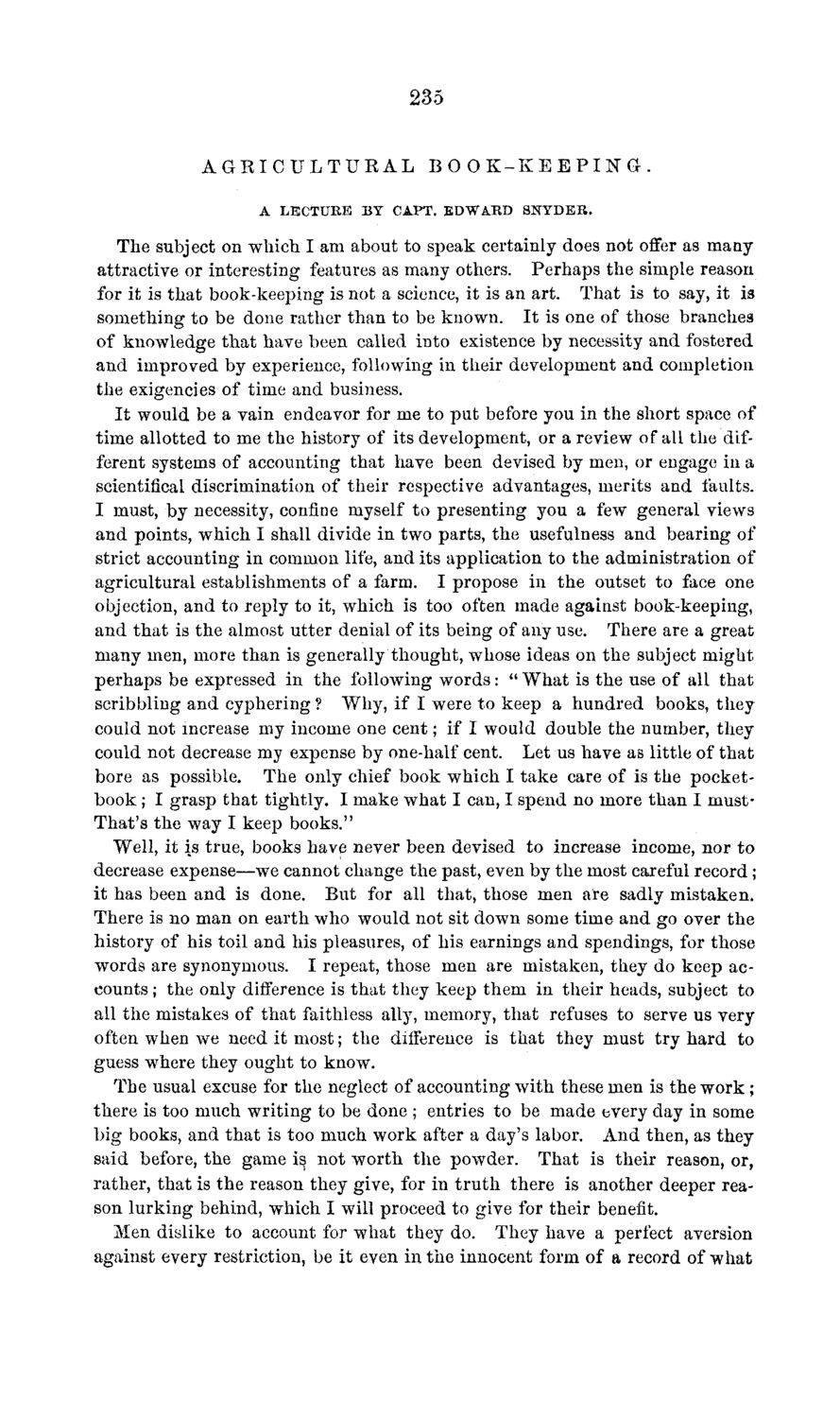| |
| |
Caption: Board of Trustees Minutes - 1869
This is a reduced-resolution page image for fast online browsing.

EXTRACTED TEXT FROM PAGE:
235 AGKICTTLTUKAL BOOK-KEEPING. SNYDER. A L E C T U R E BY CAPT. E D W A R D The subject on which I am about to speak certainly does not offer as mauy attractive or interesting features as many others. Perhaps the simple reason for it is that book-keeping is not a science, it is an art. That is to say, it is something to be done rather than to be known. I t is one of those branches of knowledge t h a t have been called into existence by necessity and fostered and improved by experience, following in their development and completion the exigencies of time and business. I t would be a vain endeavor for me to put before you in the short space of time allotted to me the history of its development, or a review of all the different systems of accounting that have been devised by men, or engage in a scientificai discrimination of their respective advantages, merits and faults. I must, by necessity, confine myself to presenting you a few general views and points, which I shall divide in two parts, the usefulness and bearing of strict accounting in common life, and its application to the administration of agricultural establishments of a farm. I propose in the outset to face one objection, and to reply to it, which is too often made against book-keeping, and that is the almost utter denial of its being of any use. There are a great many men, more than is generally thought, whose ideas on the subject might perhaps be expressed in the following w o r d s : " What is the use of all that scribbling and cyphering? Why, if I were to keep a hundred books, they could not increase my income one cent; if I would double the number, they could not decrease my expense by one-half cent. Let us have as little of t h a t bore as possible. The only chief book which I take care of is the pocketbook ; I grasp that tightly. I make what I can, I spend no more than I mustThat's the way I keep books." Well, it is true, books have never been devised to increase income, nor to decrease expense—we cannot change the past, even by the most careful record; it has been and is done. But for all that, those men are sadly mistaken. There is no man on earth who would not sit down some time and go over the history of his toil and his pleasures, of his earnings and spendings, for those words are synonymous. I repeat, those men are mistaken, they do keep accounts ; the only difference is that they keep them in their heads, subject to all the mistakes of that faithless ally, memory, t h a t refuses to serve us very often when we need it most; the difference is that they must try hard to guess where they ought to know. The usual excuse for the neglect of accounting with these men is the w o r k ; there is too much writing to be done ; entries to be made every day in some big books, and that is too much work after a day's labor. And then, as they said before, the game is not worth the powder. That is their reason, or, rather, that is the reason they give, for in t r u t h there is another deeper reason lurking behind, which I will proceed to give for their benefit. Men dislike to account for what they do. They have a perfect aversion against every restriction, be it even in the innocent form of a record of what
| |